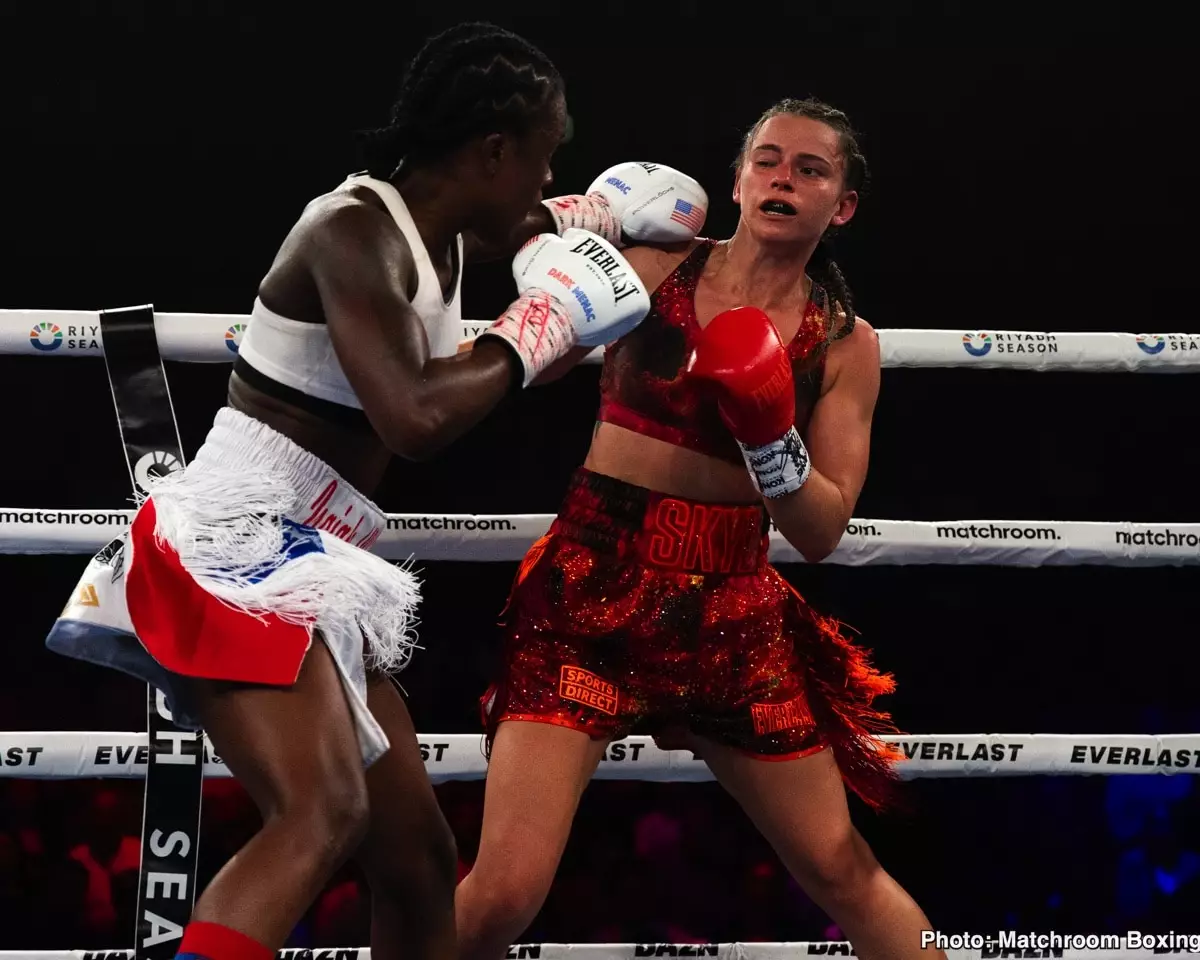The world of boxing often witnesses thrilling clashes, but the recent matchup between WBC female featherweight champion Skye Nicolson and Tiara Brown has stirred a swathe of contentious debate. This split decision loss for Nicolson has left her promoter, Eddie Hearn, grappling with the complexities of judging and performance under pressure. What should have been a confident homecoming for Nicolson, fighting in Sydney, turned into a sobering lesson about the unpredictable nature of sport. Despite being a champion, Nicolson’s loss to the undefeated Brown was as confounding as it was heart-wrenching, particularly when one considers the tumultuous dynamics that unfold in the ring every night.
The Perception of Home Turf Advantage
Hearn’s belief that Australian fighters ought to receive an edge on home turf reflects a common sentiment among fans and industry insiders alike. Typically, a familiar venue not only boosts a fighter’s morale but also lends itself to more favorable judging—at least, that’s the expectation. Hearn’s dissatisfaction with the judging, especially from an Australian judge, underscores an ongoing conversation about fairness and bias in sport. Instead of being uplifted by the atmosphere, Nicolson was seemingly subdued, allowing a far more aggressive and dominant Brown to dictate the pace of the fight. The stark reality is that while Nicolson’s strategy relied heavily on a hit-and-run approach, it ultimately played into Brown’s hands, handing her the victory on a plate.
The Art of Scoring and Judging in Boxing
The scoring of a boxing match is far from straightforward. Each judge has their own interpretation of effective aggression, clean punches, and ring generalship. In this case, Hearn lashed out against the grading system, suggesting a notable inconsistency in how rounds were awarded. According to the scorecards, which revealed splits of 96-94, 97-93, and 96-94 in favor of Brown, it seems clear that Nicolson’s efforts fell short in the eyes of the judges. Based on Hearn’s commentary, he felt that any lackluster performance from Nicolson could be tied to Brown’s overwhelming pressure and precision, which not only nullified Nicolson’s skills but also altered the judges’ perception of the fight’s dynamics.
Brown’s strategy of maintaining relentless pressure and delivering consistent combinations rendered Nicolson’s sporadic attacks nearly invisible. The judges were likely swayed by Brown’s visible aggression, which brings the focus back to a critical question: what does it mean to truly “win” a fight? The contrast between a nervous Nicolson and a confident Brown starkly highlights the psychological aspects that oftentimes overshadow the technical abilities showcased in the ring.
The Role of Fan Perception
One cannot ignore the powerful influence that fans and media narratives have in shaping the legacy of a fighter. In the lead-up to the fight, expectations were high for Nicolson, and the narrative was primed for a victorious homecoming. However, fan sentiments also pivot sharply; many spectators believed Brown’s victory was clear-cut, citing Nicolson’s ineffective spoiling style. Fan opinions are shaped by the action they witness, but they also reflect a heightened sense of loyalty to local heroes and champions. The eerie disparity in reactions to both fighters’ performances manifests in the charged atmosphere that may, in turn, affect judges, leading them to second-guess their decisions.
A Call for Fairness and Transparency
The case of Nicolson versus Brown serves as a critical reminder of the importance of integrity and transparency in boxing. It exposes the fragility of a fighter’s career trajectory when skilled athletes find themselves at the mercy of subjective interpretations. Hearn’s commentary post-fight not only addresses an immediate concern regarding the support for Australian fighters but serves as a broader call for reforms in the sport. The judging process should be held to a higher standard to ensure that fighters receive the recognition they deserve based on their performance, rather than being victims of biases and unforeseen variables.
In moments like these, it is paramount for all stakeholders—promoters, fighters, and fans—to engage in meaningful dialogue about the ethics of sports judging and explore ways to make the scoring system more accountable. For now, Nicolson’s defeat will linger in the minds of her supporters as a pivotal moment that invites both reflection and, ultimately, the hope of a more equitable path forward in her promising career.


Leave a Reply